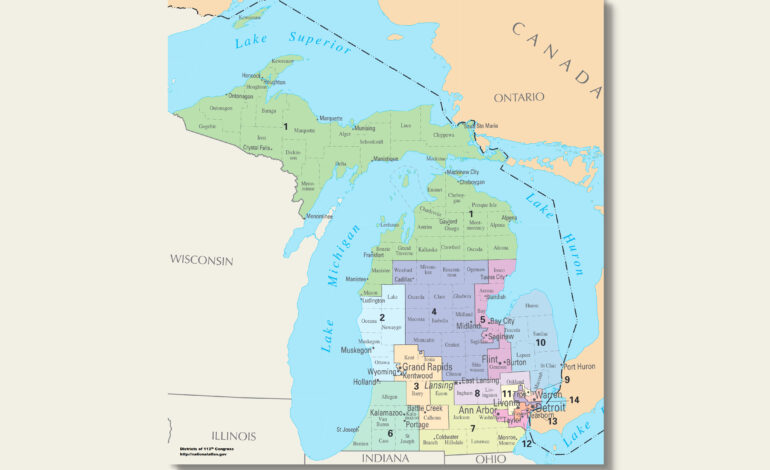DEARBORN — Many in the state may have heard of the Michigan Independent Citizens Redistricting Commission. Michiganders voted to create the commission in 2018 to give citizens exclusive power over the drawing of district boundaries for the Michigan Senate and House, and the U.S. Congress, every 10 years.
This means that 13 registered voters will randomly be selected through an application process to sit on the commission and draw district lines for the Michigan legislature and representatives to the U.S. Congress for the 2022 election and beyond. The 13 commissioners will be comprised of four Democrats, four Republicans and five independent Michiganders.
All registered Michigan voters are eligible to apply. Party officials, candidates for elections, lobbyists and their employees and close relatives are not eligible to sit on the commission. The commission is thoroughly independent, meaning Michigan’s secretary of state will only act as a “secretary without a vote” and will not have any power over map making decisions.
Why should Arab Americans in Dearborn, Dearborn Heights and elsewhere apply?
Arab Americans in Michigan are encouraged to apply for this historic effort to create district lines based on fair political representation of community interests instead of partisan politics and special corporate interests. This means that Arab Americans can have a say in how the districts with heavy Arab American presence can stay unified and exert their interests and priorities on the state and federal legislative level.
According to Michigan’s constitution, the selection process for the commissioners must take into account the demographic and geographic makeup of the state and ensure that the pool of candidates resembles this makeup as closely as possible. Therefore, Arab Americans can have a chance of being part of this representative group, which will hopefully mirror the state’s diverse population.
There are other ways to get involved in the commission beyond applying to be on it. Those ineligible to serve as a commissioner or who are not selected after applying can still submit maps to the commission or otherwise advocate for their interests before the commission.
The constitution also guarantees monetary compensation for the commissioners, equal to 25 percent of the governor’s salary, or roughly $40,000.
How to apply to serve on the Independent Citizens Redistricting Commission
An easy four-step process is now in place to ensure that the entire application process can be done online:
STEP 1: Fill out an application online by visiting RedistrictingMichigan.org. The application will also have questions concerning demographic data and political affiliation.
STEP 2: Save the completed application as a PDF document.
STEP 3: Notarize the application online by visiting michigan.gov/FreeNotary. This website will allow applicants to schedule an online notary appointment.
STEP 4: Email your completed and notarized application to MDOS-NotarizedApplication@Michigan.gov
NOTE: Application deadline is June 1.
When will the commission be selected and begin working?
The 13 commissioners will be selected no later than September 1 after a transparent three-step selection process involving both Secretary of State Jocelyn Benson and the Michigan legislature. More information on the selection process can be viewed on the commissions FAQ page at RedistrictingMichigan.org. The FAQ page also has detailed explanations of many important aspects of the commission, its roles and responsibilities, and its selection and application process.
The commission will begin meeting in the fall. Commissioners will be selected in August and must convene no later than October 15. The commission will use data from the 2020 federal decennial census and citizen input to determine district lines no later than November 1, 2021 which will take effect prior to the 2022 elections.
The state estimates, based on experiences of a similar commission in California, that the work hours will be variable depending on the week. Some weeks the time commitment may be limited to a handful of hours, while others may be much more intensive. The work will be varied throughout the year to include meetings, at least 15 constitutionally-required forums and town halls, and other discussions as the commission deems necessary to fulfill its service to the state.
Note that originally, Michigan’s secretary of state sent out physical applications by mail to 10,000 randomly selected voters. Voters can still apply online, and are encouraged to do so during the COVID-19 pandemic, even if they received these applications by mail.






Leave a Reply